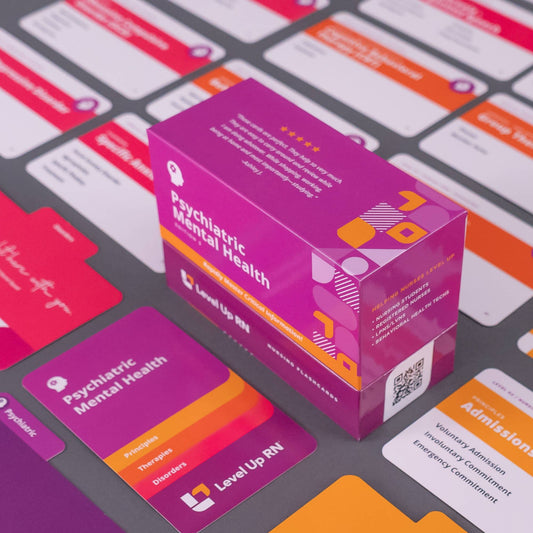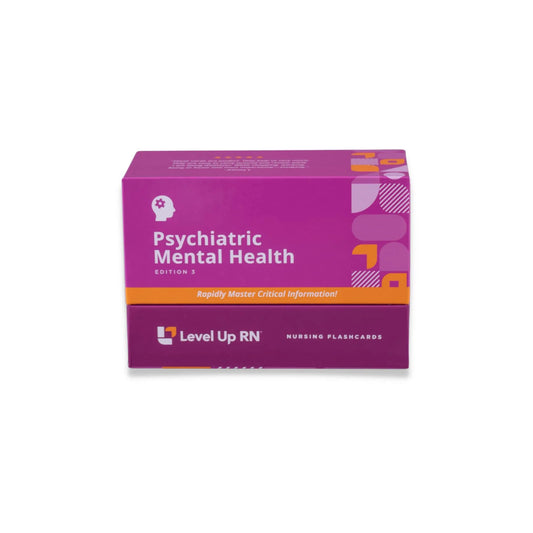Psychiatric Mental Health, part 33: Disorders - ADHD & Autism
Updated: Cathy ParkesAttention Deficit Hyperactivity Disorder (ADHD) and Autism. The symptoms, diagnosis, treatment, and family teaching associated with ADHD. The risk factors, symptoms, diagnosis, treatment, and family teaching associated with autism.
Full Transcript: Psychiatric Mental Health, part 33: Disorders - ADHD & Autism
Full Transcript: Psychiatric Mental Health, part 33: Disorders - ADHD & Autism
Hi, I'm Cathy with Level Up RN. In this video, I will be covering ADHD as well as autism. So I will be providing an overview of these disorders, really focusing on the key facts you need to know in nursing school and for your exams. And at the end of the video, I'm going to give you guys a little quiz to test your knowledge of some of the key points I'll be covering. So definitely stay tuned for that. Attention-deficit/hyperactivity disorder, or ADHD, is a psychiatric condition characterized by inattention, hyperactivity, and impulsivity. Individuals with ADHD tend to be distracted easily, have difficulty completing a task, and tend to be fidgety. So ADHD is diagnosed when there is a consistent pattern of these behaviors and the behaviors interfere with the individual's social, work, or school functioning. Treatment of ADHD includes cognitive behavioral therapy as well as medications such as central nervous system stimulants. CNS stimulants include medications such as methylphenidate and amphetamine mixtures. These medications have side effects that include decreased appetite and weight loss. So as the nurse, you're going to want to closely monitor your patient's weight and growth throughout therapy. These medications also have a key side effect of insomnia. So we would want to administer our ADHD medications earlier in the day, such as in the morning, in order to help prevent insomnia. In terms of family teaching, when caring for a child with ADHD, it's important to maintain a structured environment, decrease distractions, and provide consistent rules. In the classroom, it's ideal to teach academic subjects in the morning versus the afternoon and provide the child with frequent breaks.
Moving on to autism now. Autism is a neurological disorder that causes behavioral and psychological problems. It's more common in males and those with a family history. Signs and symptoms of autism are definitely important to know and those include impaired social interactions, repetitive behaviors, lack of eye contact, speech delay, cognitive impairment, as well as trouble adjusting to changes in routine. Diagnosis of autism is based on the child's developmental history and behavior. This means we're going to evaluate the child's language, behavior, and emotions at different ages, and then we'll compare the child's development based on what is expected at those different ages. There is no cure for autism. Treatment is really focused on early interventions to help improve functioning. So, this can include speech therapy, occupational therapy, and behavioral therapy just to name a few. In terms of family teaching, we want to advise parents to maintain a structured environment, decrease stimuli, and give plenty of notice before implementing changes to the child's routine.
All right. It's quiz time. Are you guys ready? I've got three questions for you. Question number one. What drug class is typically used to treat ADHD? The answer is central nervous system stimulants. Question number two. What time of day should medications for ADHD be provided? The answer is earlier in the day, such as in the morning, to help prevent insomnia. Question number three. Symptoms of ADHD include lack of eye contact, repetitive behavior, and trouble adapting to changes. True or false? The answer is false. Those are symptoms of autism. All right. That's it for this video. I hope you learned a lot. Take care and good luck with studying.


